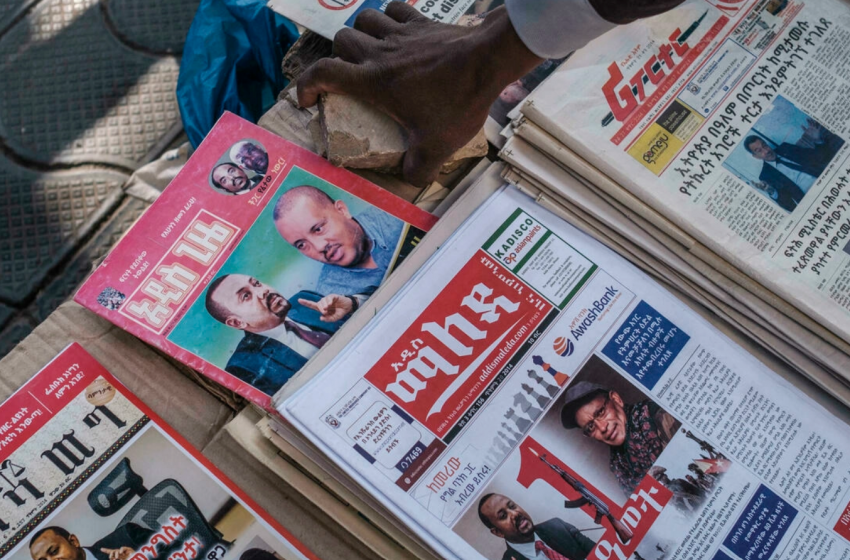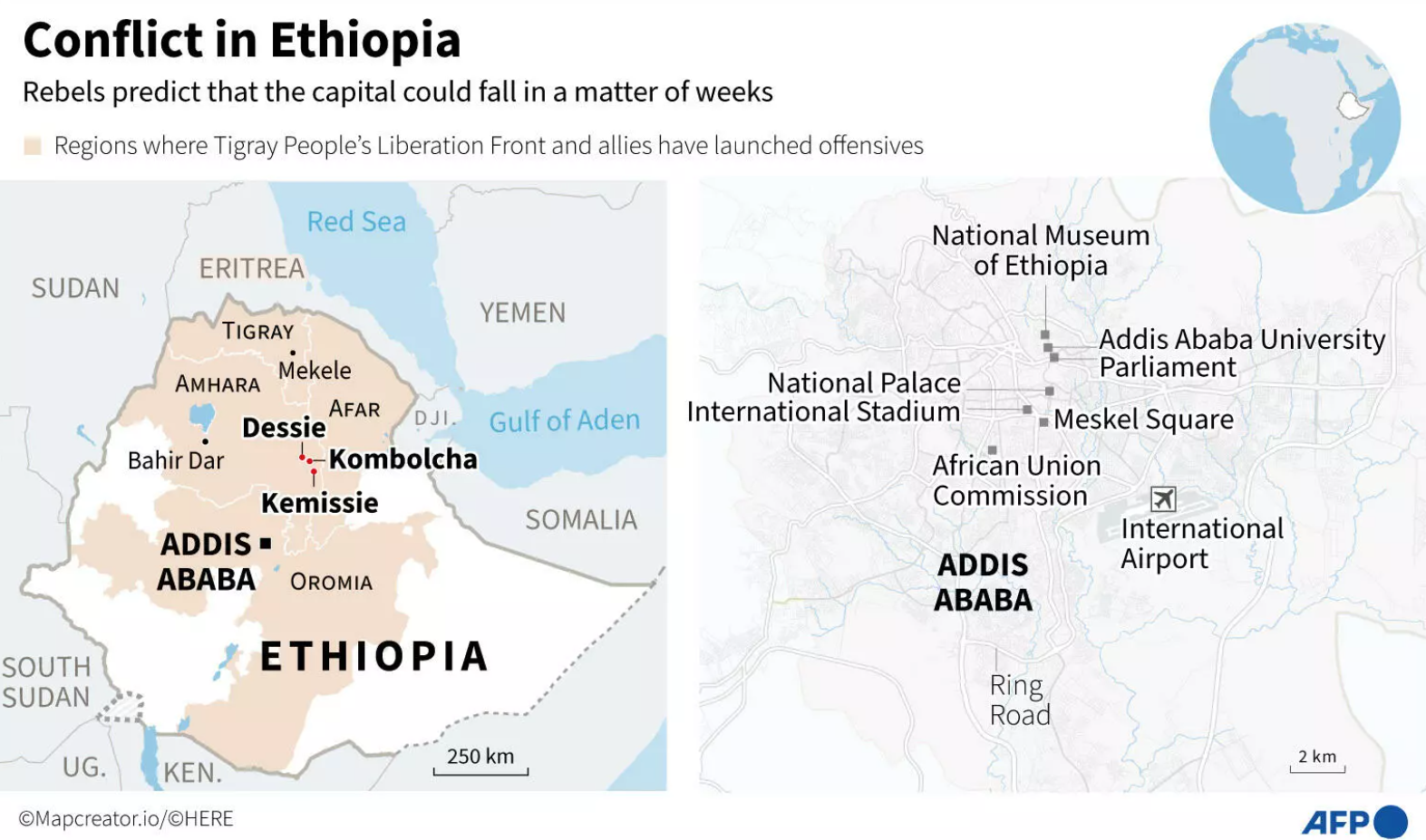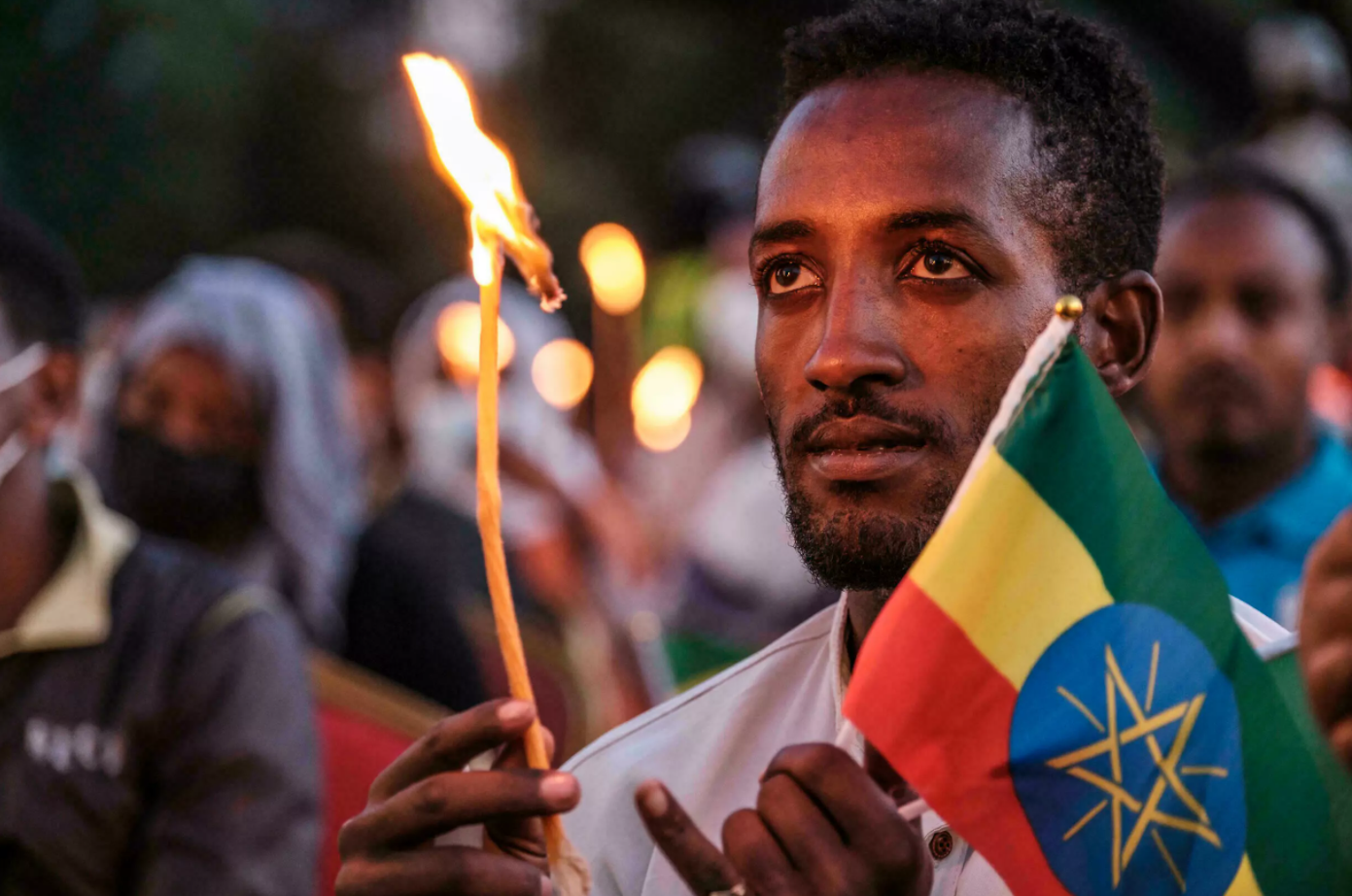
Ethiopia’s wartime emergency decree sets capital on edge
All week, Bisrat’s phone has been buzzing with news of fellow Tigrayans caught up in a fresh round of mass arrests linked to Ethiopia’s year-long war.
Source: France 24
November 5, 2021
Police first arrested his former business partner from a shop in central Addis Ababa, then detained his uncle and brother-in-law in house-to-house searches.
Lawyers say they are among thousands of Tigrayans taken into custody since Tuesday, when Prime Minister Abiy Ahmed’s government announced a state of emergency it said would protect citizens from Tigray People’s Liberation Front (TPLF) rebels.
The measure — blasted by rights groups as repressive — has ratcheted up tensions, especially for Tigrayans, as the TPLF and its allies threaten to march on the capital.
Hoping to avoid their fate, Bisrat has deleted Tigrinya-language songs and pictures of the Tigray region’s flag from his phone, and he only speaks Amharic in public.
“It’s like we don’t have air to breathe,” he told AFP.
Weapons searches
Abiy’s cabinet unveiled the six-month state of emergency after the TPLF claimed control of two key cities about 400 kilometres (250 miles) north of Addis Ababa.
The following day the group said it moved even further south to Kemissie, where it said it was working alongside the Oromo Liberation Army rebel group, which has predicted the capital could fall in a matter of weeks.

Abiy’s government Thursday painted an entirely different picture of the current battlefield dynamic, saying the TPLF was “encircled” and close to defeat.
There were few signs of widespread panic in Addis Ababa, though security forces appear to be on edge, conducting extensive searches city-wide.
More than 100 city police officers swarmed one upscale apartment building in central Addis Ababa Friday morning, demanding to inspect tenants’ identification documents and search every room for weapons.

Kenea Yadeta, head of the city’s security bureau, this week directed residents to organise to defend their neighbourhoods.
The city administration has announced all firearms must be registered, a process that will continue through at least Saturday.
Outside one police station Thursday, an AFP journalist saw dozens of people — many of whom appeared to be private security guards — queueing to register Kalashnikovs.
Amnesty cries foul
Amnesty International warned Friday that calls for civilians to take up arms — in Addis Ababa and beyond — could fuel further abuses.
It also denounced the new emergency measures, which allow for anyone suspected of supporting “terrorist groups” to be searched and held without a warrant.
They also permit authorities to conscript “any military-age citizen who has weapons” and suspend media outlets and NGOs accused of supporting the rebels.
“The sweeping nature of this state of emergency is a blueprint for escalating human rights violations, including arbitrary detention, particularly of human rights defenders, journalists, minorities and government critics,” said Amnesty East Africa director Deprose Muchena.
“And it puts detainees at heightened risk of torture and other ill-treatment.”
The war in northern Ethiopia has already killed thousands, driven hundreds of thousands into famine-like conditions and given rise to gruesome massacres.
Abiy, winner of the 2019 Nobel Peace Prize, sent troops to topple the TPLF last November, a move he said came in response to TPLF attacks on army camps.

He promised a swift victory, yet by late June the TPLF had regrouped to reclaim most of the region, then pressed offensives into the neighbouring Amhara and Afar regions.
Rising fear
Much of northern Ethiopia is under a communications blackout and access for journalists is restricted, making it difficult to assess exactly how close the rebels might be to the city.
Nevertheless the US and UK this week urged citizens to reconsider travel to Ethiopia, and the US embassy in Addis Ababa has authorised the voluntary departure of most staff and their families.
Tigrayans told AFP they were increasingly worried about their safety and the possibility that friends and neighbours might denounce them to security forces merely because of their ethnicity.
Abiy’s government has long said security forces are only going after TPLF members and supporters.
But Bisrat, who told AFP he personally knows 15 people detained this week, voiced alarm about online hate speech and a general impression that all Tigrayans are suspects.
He recalled riding in a share-taxi this week and hearing another passenger brag loudly into his phone about reporting Tigrayan neighbours to the police, saying they were then “captured”.
“He was happy when he said that,” Bisrat said. “He was laughing.”
